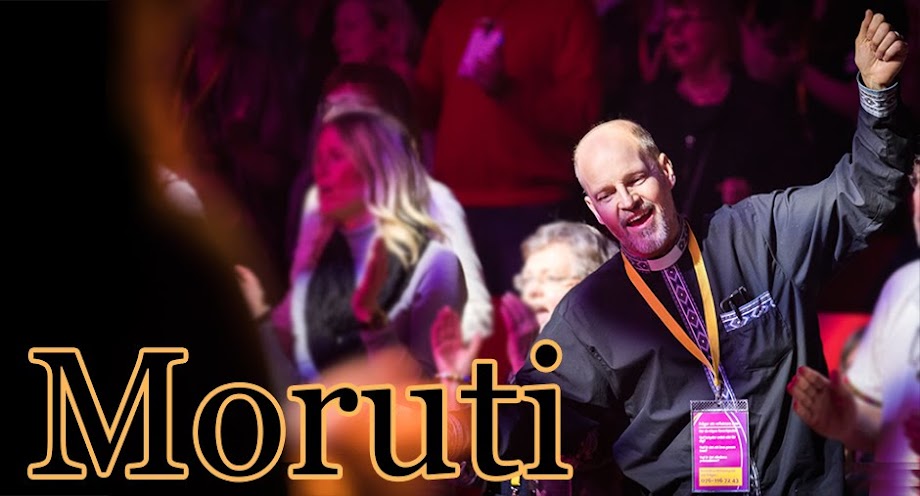Some weeks ago I got the invitation to the Triennial
Conference of the South African Council of Churches. I knew that it was coming,
after having met the President of the SACC, Bishop Joe Seoka, when I was in
Busan for the WCC Assembly in November last year. But I was not sure about the
dates. It would have been great to be part of this occasion but unfortunately
work kept me busy at the university.
A short background: The SACC has had severe problems the
last few years. One could even discuss whether it still existed. My opinion is
that, although the office had to close due to bankruptcy, and that the
Triennial Conference should have met already in 2013, the Council has existed.
The Council is first and foremost a fellowship of churches and other
organisation. This very fellowship exists even if the organisation and office
is experiencing a crisis.
The theme of the conference, which took place yesterday and
today, was:
God of Life: Renew, Restore and Transform us for the service of your Kingdom. Isaiah. 43:19
It reflects the need for something dramatically new to
happen. In order to accomplish this, the new leadership is:
President: Bishop Ziphozihle D. Siwa. (Presiding Bishop of the Methodist Church of Southern Africa. He preached at the funeral of Mandela. The sermon is here!)
Senior Vice President: Dr Frank Chikane. (He was the General Secretary of the SACC 1987-1993, when he was head hunted to the Independent Electoral Commission (IEC) and after that to the Presidency of Thabo Mbeki. With him, I think the Council wants to get the organisation in order. The question is how people will regard his close links to the ANC. One student said spontaneously: “He is polluted!”)
Vice President: Father Michael Lapsley. (He is the founder of the Institute for Healing of Memories. Fr Lapsley is a staunch member of the ANC.)
So, will this new leadership be able to give the necessary
renewal, restoration and transformation to the Council? Are they the three wise
men, who will accomplish that? There is no doubt that they have experience. Time
will show.
On a critical note I want to say two things:
1) Why only men?
2) Why three leaders with (as far as I understand) close
links to the ruling party? (About Bishop Siwa I’m speaking under correction. He
did preach at the Funeral of Mandela – the reason was of course that Mandela
was a Methodist, not that Siwa belongs to the ANC. So I might be wrong!) But
the other two are ANC members and highly respected.
Interestingly enough, when
I googled for this news (which I didn’t find on the web) I found something else
instead. (I googled on SACC, Chikane and Lapsley.) I found an Eulogy by President Zuma which he gave at the funeral of the struggle veteran and former
Member of Parliament, Sister Bernard Ncube. Zuma said, among other things:
South Africa produced exceptional men and women of the cloth who fulfilled Biblical scriptures through bravely using the church as a site of struggle to free the people they ministered to.
These leaders included church leaders like Dr Beyers Naude the founder of the Christian Institute, Archbishop Dennis Hurley, Archbishop Desmond Tutu, Dr Alan Boesak, Father Smangaliso Mkhatshwa and Father Albert Nolan and the Reverends Frank Chikane, Mcebisi Xundu, Michael Lapsley, and of course Sister Bernard Ncube.
The illustrious list also includes Father Trevor Huddlestone, who became a founder member and President of the British Anti-Apartheid Movement. He played a critical role in both the World Council of Churches and the SACC to ensure that the church adopted the programme to combat racism.
Both Chikane, Lapsley and the SACC are mentioned. Zuma also
manages to mention at least one women: Sr Ncube (after all it was her funeral).
About Zuma it is also interesting to know that he, contrary
to Mandela and Mbeki, has communicated more with charismatic and evangelical churches.
Mandela and Mbeki supported the NRLF (The National Religious Leaders Forum)
where the SACC was very active and so called mainline churches in majority. Zuma
opted for something else and the National Interfaith Leadership Council (NILC)
was formed. Those two bodies later merged into the National Interfaith Council of South Africa (NICSA). Instrumental in this process was Pastor Ray McCauley
of the Rhema Bible Church.
Well, time will show what happens with the SACC. I pray that
these three competent persons will be able to facilitate the process of getting
the Council back on track.
If I were to add something I would like the whole Council to
be restructured. Just like it happened with the Christian Council of South
Africa (CCSA) in 1967-68, when it got new constitution and a new name. This
organisation was only 31 years old. (It was formed in 1936). The SACC is 46
years old. To me it makes sense to restructure an ecumenical movement from time
to time, because the ecumenical landscape changes. I hope the new leadership
read the WCC document: “Together Towards Life: Mission and Evangelism in Changing Landscapes” closely. Especially the part called: “Mission from the margins”. The
questions should be:
Who are on the margins in South Africa today?
How do we make sure that their voice is being listened to?

No comments:
Post a Comment